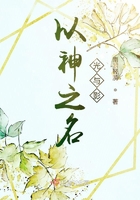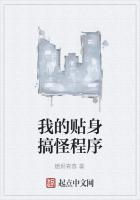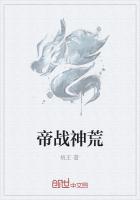They began slowly, then went more rapidly.They turned; all around them was turning-the lamps, the furniture, thewainscoting, the floor, like a disc on a pivot. On passing near the doors thebottom of Emma's dress caught against his trousers.Their legs commingled; he looked down at her; she raised her eyes to his. Atorpor seized her; she stopped. They started again, and with a more rapidmovement; the Viscount, dragging her along disappeared with her to the end ofthe gallery, where panting, she almost fell, and for a moment rested her headupon his breast. And then, still turning, but more slowly, he guided her backto her seat. She leaned back against the wall and covered her eyes with herhands.
When she opened them again, in the middle ofthe drawing room three waltzers were kneeling before a lady sitting on a stool.She chose the Viscount, and the violin struck up once more.
Everyone looked at them. They passed andre-passed, she with rigid body, her chin bent down, and he always in the samepose, his figure curved, his elbow rounded, his chin thrown forward. That womanknew how to waltz! They kept up a long time, and tired out all the others.
Then they talked a few moments longer, andafter the goodnights, or rather good mornings, the guests of the chateauretired to bed.
Charles dragged himself up by the balusters.His “knees were going up into his body.” He had spent five consecutive hours standing bolt upright at thecard tables, watching them play whist, without understanding anything about it,and it was with a deep sigh of relief that he pulled off his boots.
Emma threw a shawl over her shoulders, openedthe window, and leant out.
The night was dark; some drops of rain werefalling. She breathed in the damp wind that refreshed her eyelids. The music ofthe ball was still murmuring in her ears. And she tried to keep herself awakein order to prolong the illusion of this luxurious life that she would soonhave to give up.
Day began to break. She looked long at thewindows of the chfiteau, trying to guess which were the rooms of all those shehad noticed the evening before. She would fain have known their lives, havepenetrated, blended with them. But she was shivering with cold. She undressed,and cowered down between the sheets against Charles, who was asleep.
There were a great many people to luncheon.The repast lasted ten minutes; no liqueurs were served, which astonished thedoctor. Next, Mademoiselle d'Andervilliers collectedsome pieces of roll in a small basket to take them to the swans on theornamental waters, and they went to walk in the hot-houses, where strangeplants, bristling with hairs, rose in pyramids under hanging vases, whence, asfrom over-filled nests of serpents, fell long green cords interlacing. Theorangery, which was at the other end, led by a covered way to the outhouses ofthe chfiteau. The Marquis, to amuse the young woman, took her to see thestables. Above the basket-shaped racks porcelain slabs bore the names of thehorses in black letters. Each animal in its stall whisked its tail when anyonewent near and said “Tchk! tchk!” The boards of the harness room shone like the flooring of a drawingroom. The carriage harness was piled up in the middle against two twistedcolumns, and the bits, the whips, the spurs, the curbs, were ranged in a lineall along the wall.
Charles, meanwhile, went to ask a groom toput his horse to. The dog-cart was brought to the foot of the steps, and, allthe parcels being crammed in, the Bovarys paid their respects to the Marquisand Marchioness and set out again for Tostes.
Emma watched the turning wheels in silence.Charles, on the extreme edge of the seat, held the reins with his two arms wideapart, and the little horse ambled along in the shafts that were too big forhim. The loose reins hanging over his crupper were wet with foam, and the boxfastened on behind the chaise gave great regular bumps against it.
They were on the heights of Thibourville whensuddenly some horsemen with cigars between their lips passed laughing. Emmathought she recognized the Viscount, turned back, and caught on the horizononly the movement of the heads rising or falling with the unequal cadence ofthe trot or gallop.
A mile farther on they had to stop to mendwith some string the traces that had broken.
But Charles, giving a last look to theharness, saw something on the ground between his horse'slegs, and he picked up a cigar-case with a green silk border and beblazoned inthe centre like the door of a carriage.
“There are even two cigars in it,” said he; “they'lldo for this evening after dinner.”
“Why, do you smoke?”she asked.
“Sometimes, when I get a chance.”
He put his find in his pocket and whipped upthe nag.
When they reached home the dinner was notready. Madame lost her temper. Nastasie answered rudely.
“Leave the room!”said Emma. “You are forgetting yourself. I give youwarning.”
For dinner there was onion soup and a pieceof veal with sorrel. Charles, seated opposite Emma, rubbed his hands gleefully.
“How good it is to be at home again!”
Nastasie could be heard crying. He was ratherfond of the poor girl. She had formerly, during the wearisome time of hiswidowhood, kept him company many an evening. She had been his first patient,his oldest acquaintance in the place.
“Have you given her warning for good?” he asked at last.
“Yes. Who is to prevent me?” she replied.
Then they warmed themselves in the kitchenwhile their room was being made ready. Charles began to smoke. He smoked withlips protruding, spitting every moment, recoiling at every puff.
“You'll make yourselfill,” she said scornfully.
He put down his cigar and ran to swallow aglass of cold water at the pump. Emma seizing hold of the cigar case threw itquickly to the back of the cupboard.
The next day was a long one. She walked abouther little garden, up and down the same walks, stopping before the beds, beforethe espalier, before the plaster curé, looking withamazement at all these things of once-on-a-time that she knew so well. How faroff the ball seemed already! What was it that thus set so far asunder themorning of the day before yesterday and the evening of to-day? Her journey toVaubyessard had made a hole in her life, like one of those great crevices thata storm will sometimes make in one night in mountains. Still she was resigned.She devoutly put away in her drawers her beautiful dress, down to the satinshoes whose soles were yellowed with the slippery wax of the dancing floor. Herheart was like these. In its friction against wealth something had come over itthat could not be effaced.
The memory of this ball, then, became anoccupation for Emma. Whenever the Wednesday came round she said to herself asshe awoke, “Ah! I was there a week a fortnight threeweeks ago.”And little by little the faces grew confusedin her remembrance. She forgot the tune of the quadrilles; she no longer sawthe liveries and appointments so distinctly; some details escaped her, but theregret remained with her.
Chapter 9
Often when Charles was out she took from thecupboard, between the folds of the linen where she had left it, the green silkcigar case. She looked at it, opened it, and even smelt the odour of thelining-a mixture of verbena and tobacco. Whose was it? The Viscount's? Perhaps it was a present from his mistress. It had beenembroidered on some rosewood frame, a pretty little thing, hidden from alleyes, that had occupied many hours, and over which had fallen the soft curls ofthe pensive worker. A breath of love had passed over the stitches on thecanvas; each prick of the needle had fixed there a hope or a memory, and allthose interwoven threads of silk were but the continuity of the same silentpassion. And then one morning the Viscount had taken it away with him. Of whathad they spoken when it lay upon the wide-mantelled chimneys between flower-vasesand Pompadour clocks? She was at Tostes; he was at Paris now, far away! Whatwas this Paris like? What a vague name! She repeated it in a low voice, for themere pleasure of it; it rang in her ears like a great cathedral bell; it shonebefore her eyes, even on the labels of her pomade-pots.
At night, when the carriers passed under herwindows in their carts singing the Marjolaine, she awoke, and listened to thenoise of the iron-bound wheels, which, as they gained the country road, wassoon deadened by the soil. “They will be theretomorrow!” she said to herself.
And she followed them in thought up and downthe hills, traversing villages, gliding along the highroads by the light of thestars. At the end of some indefinite distance there was always a confused spot,into which her dream died.
She bought a plan of Paris, and with the tipof her finger on the map she walked about the capital. She went up theboulevards, stopping at every turning, between the lines of the streets, infront of the white squares that represented the houses. At last she would closethe lids of her weary eyes, and see in the darkness the gas jets flaring in thewind and the steps of carriages lowered with much noise before the peristylesof theatres.
She took in La Corbeille, a lady's journal, and the Sylphe des Salons. She devoured, without skippinga word, all the accounts of first nights, races, and soirées, took interest in the debut of a singer, in the opening of a newshop. She knew the latest fashions, the addresses of the best tailors, the daysof the Bois and the Opera. In Eugéne Sue she studieddeions of furniture; she read Balzac and George Sand, seeking in themimaginary satisfaction for her own desires. Even at table she had her book byher, and turned over the pages while Charles ate and talked to her. The memoryof the Viscount always returned as she read. Between him and the imaginarypersonages she made comparisons. But the circle of which he was the centregradually widened round him, and the aureole that he bore, fading from hisform, broadened out beyond, lighting up her other dreams.
Paris, more vague than the ocean, glimmeredbefore Emma's eyes in an atmosphere of vermilion. Themany lives that stirred amid this tumult were, however, divided into parts,classed as distinct pictures. Emma perceived only two or three that hid fromher all the rest, and in themselves represented all humanity. The world ofambassadors moved over polished floors in drawing rooms lined with mirrors,round oval tables covered with velvet and gold-fringed cloths. There weredresses with trains, deep mysteries, anguish hidden beneath smiles. Then camethe society of the duchesses; all were pale; all got up at four o'clock; the women, poor angels, wore English point on their petticoats;and the men, unappreciated geniuses under a frivolous outward seeming, rodehorses to death at pleasure parties, spent the summer season at Baden, andtowards the forties married heiresses. In the private rooms of restaurants,where one sups after midnight by the light of wax candles, laughed the motleycrowd of men of letters and actresses. They were prodigal as kings, full ofideal, ambitious, fantastic frenzy. This was an existence outside that of allothers, between heaven and earth, in the midst of storms, having something ofthe sublime. For the rest of the world it was lost, with no particular placeand as if non-existent. The nearer things were, moreover, the more her thoughtsturned away from them. All her immediate surroundings, the wearisome country,the middle-class imbeciles, the mediocrity of existence, seemed to herexceptional, a peculiar chance that had caught hold of her, while beyondstretched, as far as eye could see, an immense land of joys and passions. Sheconfused in her desire the sensualities of luxury with the delights of theheart, elegance of manners with delicacy of sentiment. Did not love, likeIndian plants, need a special soil, a particular temperature? Signs bymoonlight, long embraces, tears flowing over yielded hands, all the fevers ofthe flesh and the languors of tenderness could not be separated from thebalconies of great castles full of indolence, from boudoirs with silkencurtains and thick carpets, well-filled flower-stands, a bed on a raised dias,nor from the flashing of precious stones and the shoulder-knots of liveries.
The lad from the posting house who came togroom the mare every morning passed through the passage with his heavy woodenshoes; there were holes in his blouse; his feet were bare in list slippers. Andthis was the groom in knee-britches with whom she had to be content! His workdone, he did not come back again all day, for Charles on his return put up hishorse himself, unsaddled him and put on the halter, while the servant-girlbrought a bundle of straw and threw it as best she could into the manger.
To replace Nastasie (who left Tostes sheddingtorrents of tears) Emma took into her service a young girl of fourteen, anorphan with a sweet face. She forbade her wearing cotton caps, taught her toaddress her in the third person, to bring a glass of water on a plate, to knockbefore coming into a room, to iron, starch, and to dress her wanted to make alady's-maid of her. The new servant obeyed without amurmur, so as not to be sent away; and as madame usually left the key in thesideboard, Fé1icité everyevening took a small supply of sugar that she ate alone in her bed after shehad said her prayers.
Sometimes in the afternoon she went to chatwith the postilions. Madame was in her room upstairs. She wore an open dressinggown that showed between the shawl facings of her bodice a pleated chamisettewith three gold buttons. Her belt was a corded girdle with great tassels, andher small garnet coloured slippers had a large knot of ribbon that fell overher instep. She had bought herself a blotting book, writing case, pen-holder,and envelopes, although she had no one to write to; she dusted her what-not,looked at herself in the glass, picked up a book, and then, dreaming betweenthe lines, let it drop on her knees. She longed to travel or to go back to herconvent. She wished at the same time to die and to live in Paris.
Charles in snow and rain trotted acrosscountry. He ate omelettes on farmhouse tables, poked his arm into damp beds,received the tepid spurt of blood-lettings in his face, listened todeath-rattles, examined basins, turned over a good deal of dirty linen; butevery evening he found a blazing fire, his dinner ready, easy-chairs, and awell-dressed woman, charming with an odour of freshness, though no one couldsay whence the perfume came, or if it were not her skin that made odorous herchemise.















